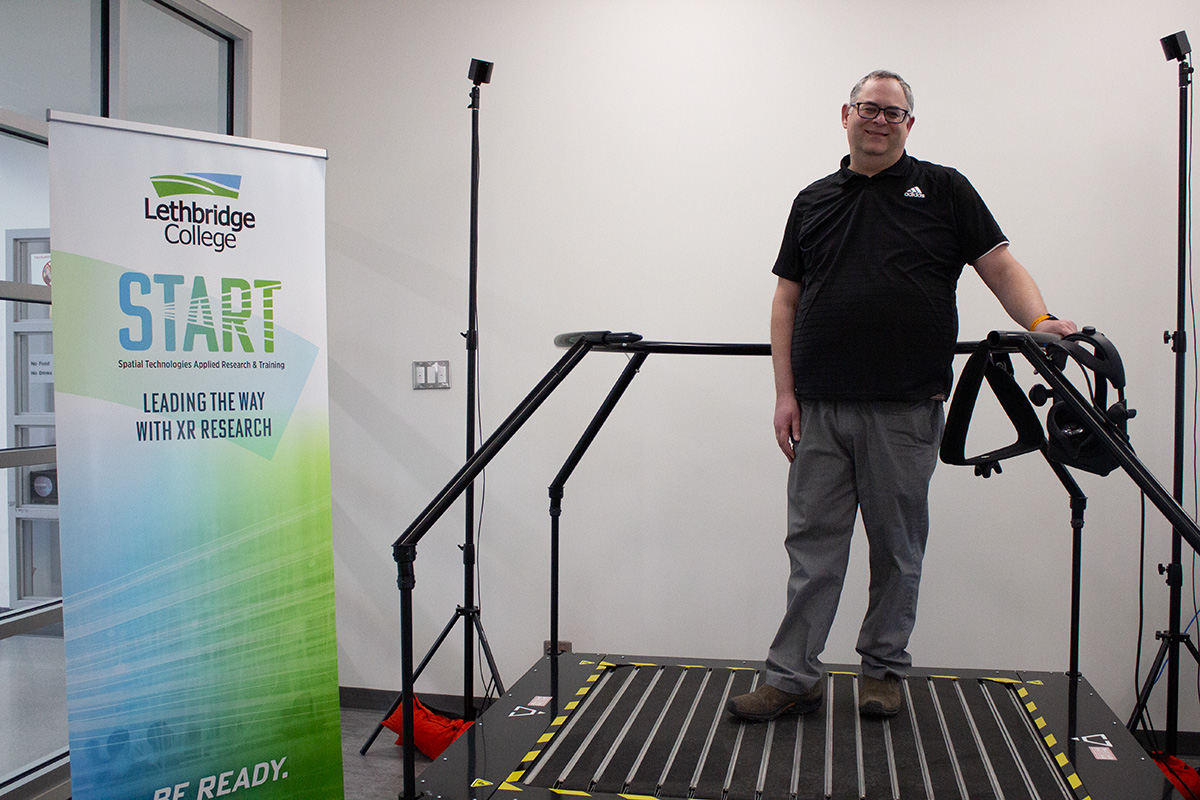Research chair at START and VR/AR instructor, Mike McCready, checks out the Infinadeck Omnidirectional Treadmill on March 22 at Lethbridge College. It is the first of its kind in Canada.
Lethbridge College’s Spatial Technologies Applied Research and Training (START) Centre had its official launch March 24.
The Virtual and Augmented Reality (VR/AR) program is a one-year certificate where students are able to learn all about production fundamentals, experiential design, spatial media and industry application. The program was created under the START initiative.
Allyson Cikor, esports coordinator and contract lead artist at Lethbridge College, said during the open house, prospective students will be able to learn all about the program.
“Within [the program] you learn kind of every facet of development. So, usually when you do one of those projects, you have content experts, programmers, audio people, art people of different kinds. In the program, you dabble in a little bit of everything, so you’re able to make your own VR/AR content from scratch or specialize and work within a team. We like to keep things really project-focused instead of doing a lot of lectures and then big projects at the end,” said Cikor.
Some examples of this year’s student projects include solo projects based on a comic book, a VR program that helps students at the Lethbridge School Division and another project includes learning about different bird species.
Cikor said one of VR’s main advantages is it’s the closest we’ve ever got to being able to recreating real-life situations.
Mike McCready, research chair at START and VR/AR instructor, echoed Cikor’s words.
“One of the biggest advantages is that it allows you to do the things that are not possible, such as traveling back in time or being somebody else. It allows you to experience new opportunities in ways that aren’t possible, like being able to go to the moon or to be able to go back in time,” said McCready.
Virtual reality also has its disadvantages, McCready reflects on sickness users might experience when using the technology as well as other disadvantages.
“Some other potential issues are being able to create this false sense of reality. Just like with video games and computers, you may spend too much time on there and with the immersive
nature of virtual reality, there’s obviously a risk of that as well,” said McCready.
The technology may have its disadvantages, but McCready believes that one day VR will become mainstream technology, much like how the internet is accessed everyday by almost everyone.
“The spatial content is the future where virtual reality is just the access point. Just like we access the Internet through our phone or our computer or our smart TV. Virtual reality is just another access point to access the spatial,” said McCready.
Career opportunities from the program include interactive media developer, junior software developer, VR and AR content creator, developer and specialist.
Those interested in pursuing a career in VR can visit the college’s website at lethbridgecollege.ca/programs/virtual-and-augmented-reality for more information.

